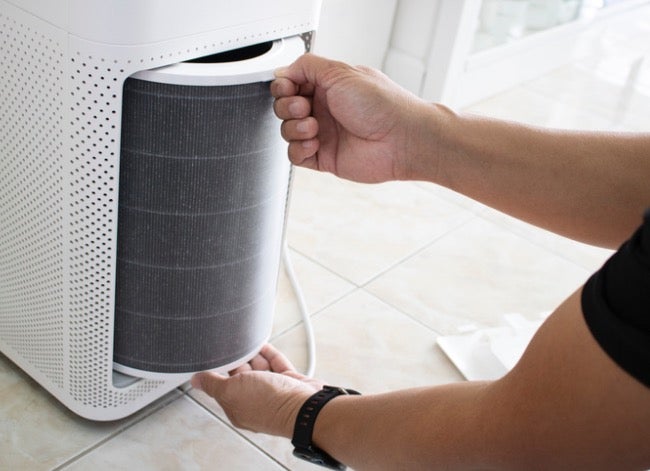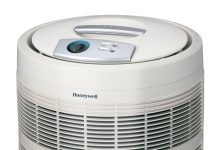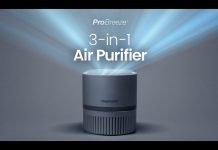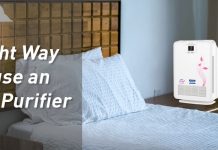Do Air Purifiers Work? The Science Behind Indoor Air Quality
In the modern era, where indoor air quality is of increasing concern, air purifiers have gained significant attention. Are air purifiers effective in truly improving the air we breathe, or are they just another gadget promising more than they can deliver? In this comprehensive guide, we delve into the mechanisms, benefits, and considerations surrounding the effectiveness of air purifiers.
How Do Air Purifiers Work? Mechanisms and Processes
To understand the efficacy of air purifiers, it’s crucial to grasp how they function. Air purifiers operate through various mechanisms that work synergistically to eliminate airborne pollutants and enhance indoor air quality.
Filtration
One of the primary methods employed by air purifiers is filtration. These devices feature filters that trap particles as air passes through them. High-efficiency particulate air (HEPA) filters, known for their exceptional efficiency, capture even the smallest particles, including dust, allergens, and pet dander.
Purification Technologies
Advanced air purifiers incorporate purification technologies such as activated carbon filters and photocatalytic oxidation to tackle a broader range of pollutants. Activated carbon adsorbs gases and odors, while photocatalytic oxidation helps break down volatile organic compounds (VOCs).
Circulation and Ventilation
Air purifiers not only clean the air but also enhance air circulation. Improved air circulation contributes to dispersing purified air throughout the room, reducing the concentration of pollutants.

Types of Pollutants Air Purifiers Address
Air purifiers are designed to combat an array of pollutants that can compromise indoor air quality. These pollutants encompass both visible and invisible particles that can adversely affect respiratory health and overall well-being.
Dust and Allergens
Airborne dust and allergens, such as pollen and pet dander, are common indoor pollutants that can trigger allergic reactions and worsen respiratory conditions. Air purifiers equipped with HEPA filters are particularly effective in capturing these particles.
Mold Spores
Mold spores are not only unsightly but can also contribute to indoor air quality issues and health concerns. Air purifiers can help mitigate mold-related problems by reducing the concentration of mold spores in the air.
Volatile Organic Compounds (VOCs)
VOCs are emitted by various household products and can have short- and long-term health effects. Air purifiers equipped with activated carbon filters and purification technologies can effectively neutralize VOCs.
Evaluating Air Purifier Effectiveness
Determining the effectiveness of air purifiers requires considering multiple factors that contribute to their performance in different settings.
Clean Air Delivery Rate (CADR)
CADR measures an air purifier’s efficiency in removing specific pollutants from the air. It’s a standardized metric that indicates how much clean air an air purifier can deliver in a given amount of time. Look for air purifiers with higher CADR ratings for the pollutants of concern.
Filter Efficiency and Maintenance
The efficiency of filters, especially HEPA filters, is crucial. Regular filter replacement ensures consistent performance. Neglecting filter maintenance can compromise an air purifier’s effectiveness over time.
Room Size Coverage
Choose an air purifier with the appropriate room size coverage for the area you intend to use it in. A purifier with a lower room size coverage might struggle to effectively clean larger spaces.
Benefits of Using Air Purifiers
The advantages of using air purifiers extend beyond the realm of cleaner air. Here are some notable benefits:
Improved Indoor Air Quality
The primary benefit of air purifiers is evident: they contribute to enhanced indoor air quality by reducing the concentration of pollutants.
Allergy and Asthma Relief
Air purifiers can provide relief to individuals with allergies and asthma by minimizing the presence of allergens and irritants in the air.
Respiratory Health Support
Cleaner air can lead to improved respiratory health, especially for those with preexisting conditions such as chronic obstructive pulmonary disease (COPD).
Odor Reduction
Air purifiers equipped with activated carbon filters help eliminate unpleasant odors caused by cooking, pets, and other sources.
Enhanced Comfort
Improved indoor air quality translates to a more comfortable living environment, promoting overall well-being.
Considerations for Optimal Air Purifier Performance
While air purifiers can significantly improve indoor air quality, a few factors can influence their overall effectiveness.
Placement Matters
Strategic placement of your air purifier is essential. Position it in a location where it can efficiently circulate and purify the air in the room. Avoid placing it behind furniture or in corners that obstruct airflow.
Regular Maintenance
Maintaining your air purifier is crucial for sustained performance. Follow the manufacturer’s recommendations for filter replacement and cleaning to ensure optimal filtration and circulation.
Selecting the Right Model
Choose an air purifier that aligns with your needs. If you’re concerned about specific pollutants, such as allergens or smoke, opt for a purifier with appropriate filters and technologies.
Limitations and Realistic Expectations
While air purifiers offer numerous benefits, it’s essential to set realistic expectations:
Limited Impact on Outdoor Pollution
Air purifiers are designed to clean indoor air. They have limited influence on outdoor pollution or pollutants that enter the home through open doors and windows.
Not a Cure-All Solution
Air purifiers complement a holistic approach to indoor air quality. Regular cleaning, proper ventilation, and maintaining a dust-free environment also contribute to healthier air.
Room Size Matters
Choosing an air purifier with the right room size coverage is crucial. Using a purifier designed for smaller spaces in a larger area may lead to suboptimal performance.
Expert Opinions and Studies
Expert opinions and studies can shed light on the effectiveness of air purifiers:
Expert Insights
Health organizations like the American Lung Association and the Environmental Protection Agency (EPA) recognize air purifiers’ potential to improve indoor air quality and offer relief to individuals with respiratory issues.
Research and Studies
Reputable studies have shown that air purifiers can reduce airborne particulate matter and improve air quality in various indoor settings.
Do Air Purifiers Work for Specific Concerns?
As we delve deeper into the effectiveness of air purifiers, it’s essential to address whether they can address specific air quality concerns and provide targeted solutions.
Allergies and Asthma
Air purifiers equipped with HEPA filters are particularly effective in capturing airborne allergens such as pollen, dust mites, and pet dander. Individuals with allergies and asthma can benefit from reduced exposure to these triggers.
Smoke and Odors
For those dealing with smoke from cooking, tobacco, or wildfires, air purifiers with activated carbon filters can help significantly reduce smoke particles and odors, providing relief and fresher indoor air.
Pet-Related Concerns
Pet owners often face challenges with pet dander and odors. Air purifiers can aid in controlling allergens and eliminating pet-related smells, enhancing indoor air quality.
Chemical Sensitivities
Air purifiers equipped with advanced purification technologies can help mitigate the effects of volatile organic compounds (VOCs) emitted by cleaning products, paints, and furniture.
Expert Opinions and Studies: Affirming Effectiveness
The efficacy of air purifiers is supported by expert opinions and scientific studies:
Expert Validation
Prominent experts and health organizations recognize air purifiers as valuable tools in improving indoor air quality and minimizing health risks associated with pollutants.
Research Findings
Numerous studies have demonstrated the positive impact of air purifiers on reducing particle concentrations and improving air quality in residential and commercial settings.
Frequently Asked Questions About Air Purifiers
Do air purifiers really work?
Yes, air purifiers are designed to improve indoor air quality by removing pollutants like dust, allergens, and odors.
How do air purifiers improve air quality?
Air purifiers use various technologies, such as filtration and purification, to capture and neutralize airborne pollutants.
Can air purifiers remove allergens?
Absolutely. HEPA filters in air purifiers effectively capture allergens like pollen, pet dander, and dust mites.
Are air purifiers effective against odors?
Yes, air purifiers with activated carbon filters can significantly reduce unpleasant odors caused by cooking, smoke, and pets.
Can air purifiers help with respiratory issues?
Air purifiers can provide relief to individuals with respiratory conditions by reducing irritants in the air, but they are not a substitute for medical treatment.
Do air purifiers eliminate mold spores?
Air purifiers with proper filtration can help reduce mold spores in the air, contributing to a healthier indoor environment.
Can air purifiers remove smoke particles?
Air purifiers equipped with HEPA and activated carbon filters are effective in capturing smoke particles and minimizing indoor smoke.
Do air purifiers consume a lot of energy?
Air purifiers’ energy consumption varies, but many models are designed to be energy-efficient without significantly increasing electricity bills.
How often should I replace air purifier filters?
Filter replacement frequency depends on usage and the type of purifier. Generally, HEPA filters should be replaced every 6 to 12 months.
Are air purifiers a solution for outdoor air pollution?
Air purifiers are primarily designed for indoor use and might have limited impact on outdoor air pollution entering the home.
Conclusion:
In the quest to answer the question “Do air purifiers work?” it’s evident that air purifiers do indeed play a significant role in enhancing indoor air quality. Their effectiveness varies based on factors like the type of purifier, specific concerns, and proper usage. By choosing the right air purifier, maintaining it diligently, and understanding its limitations, you can create a healthier and more comfortable living environment.




